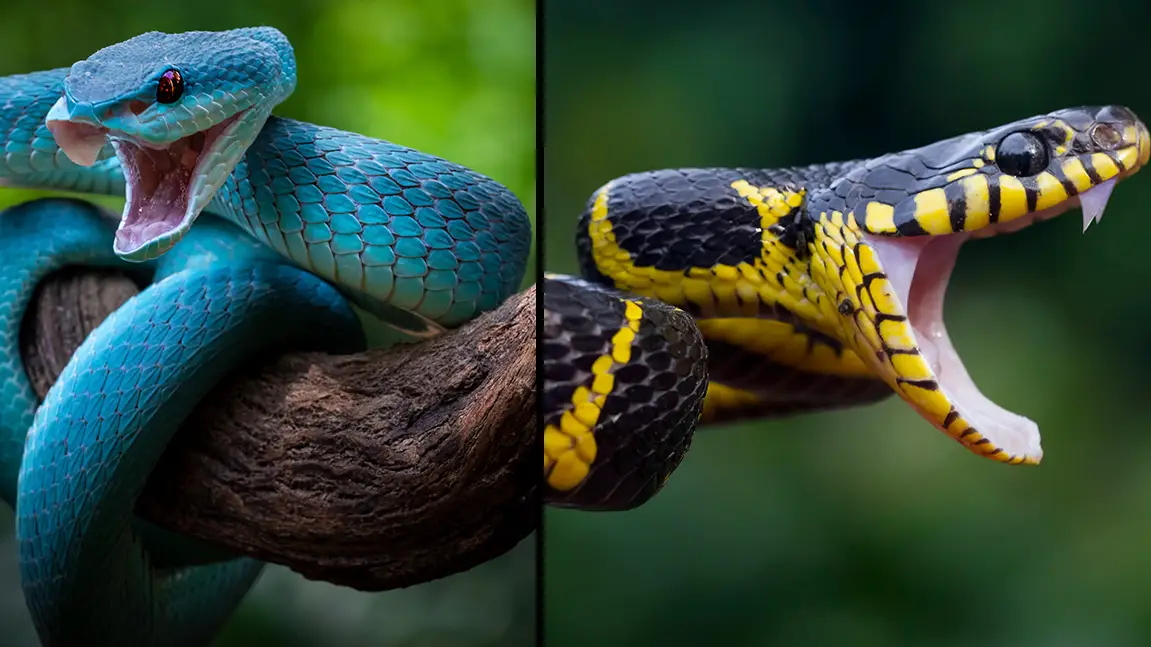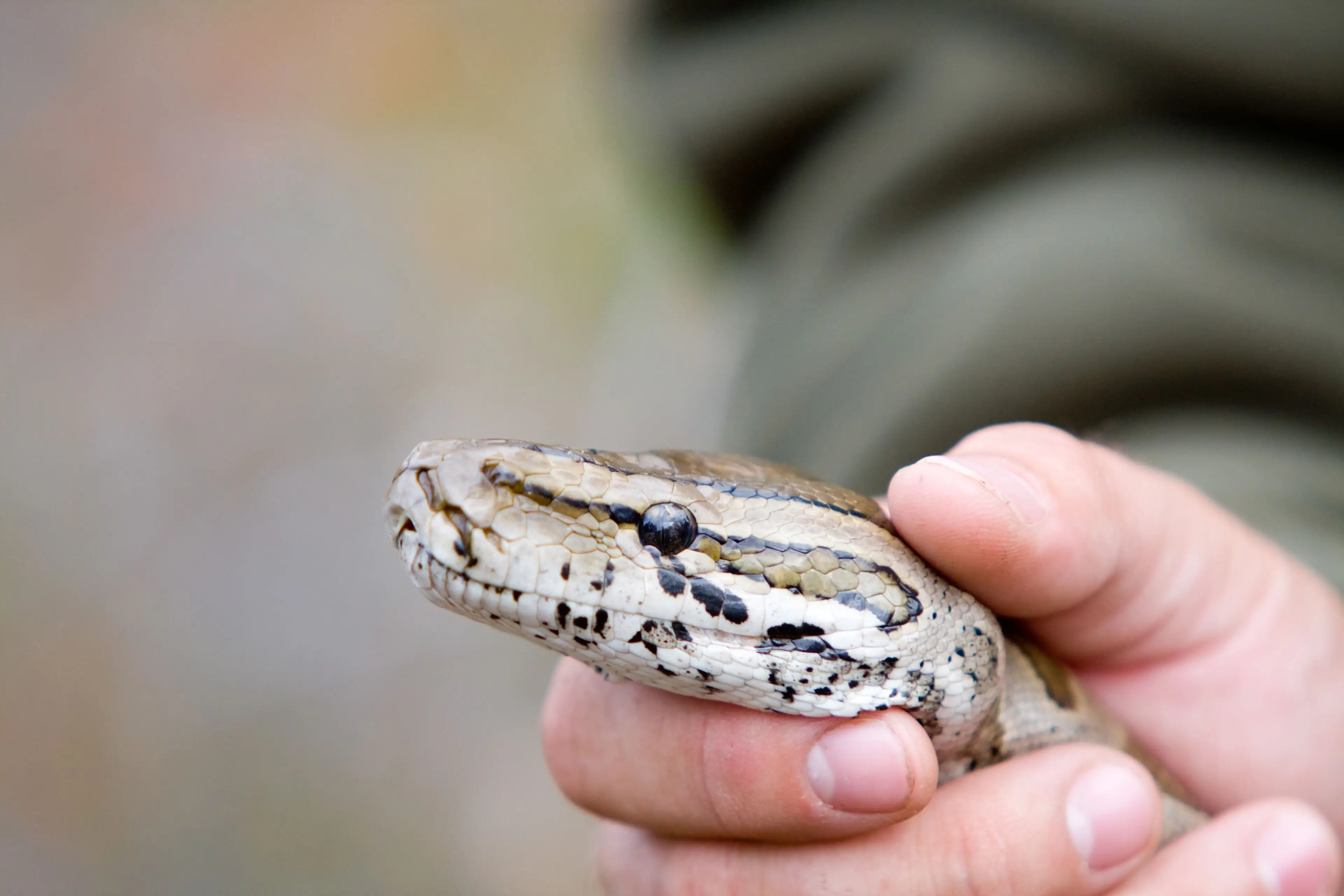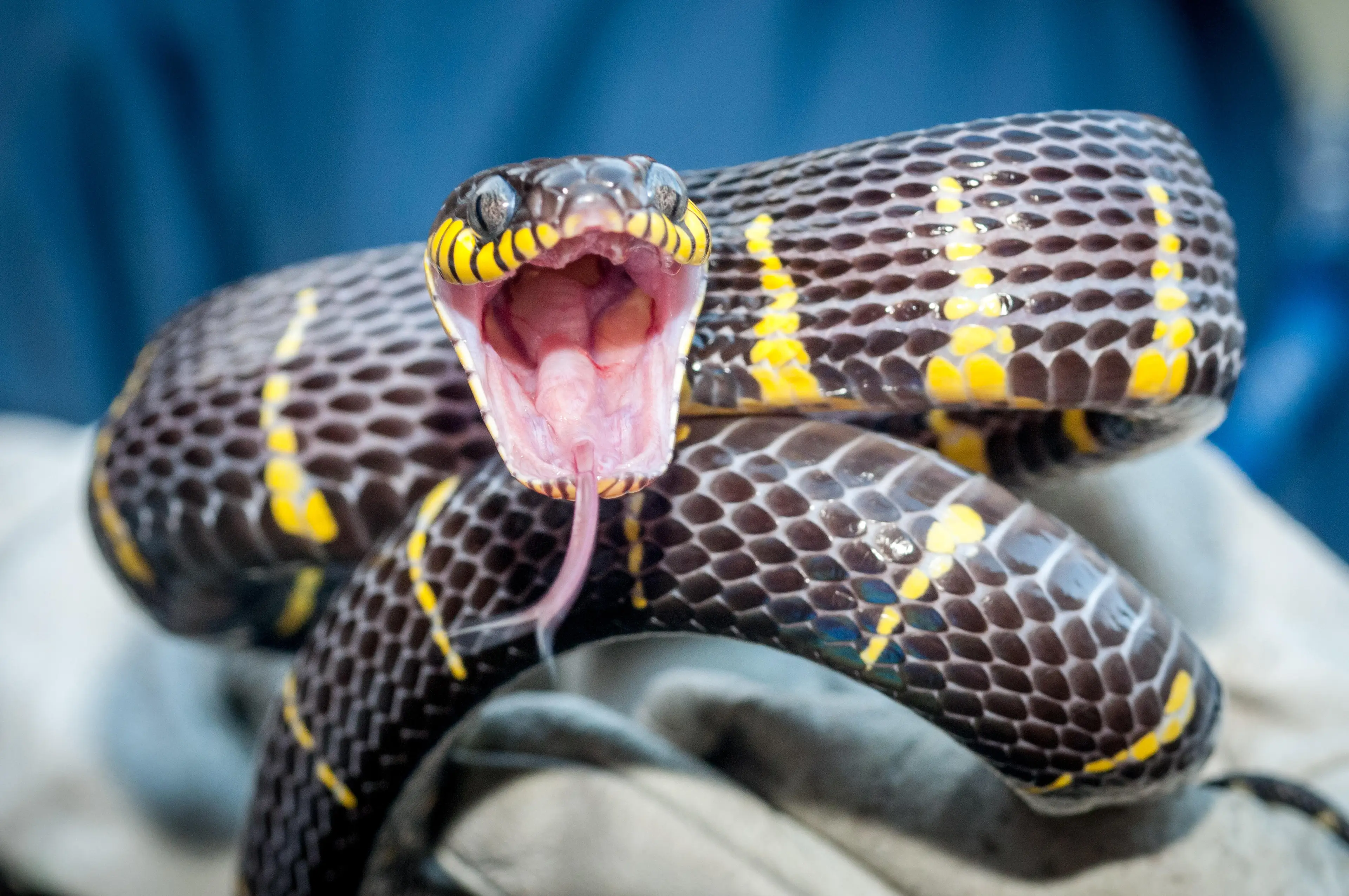
Venomous snake attacks are on the rise in the UK as a result of more people having the animals as pets.
Though the scaley reptiles aren't typically considered the cuddliest creatures out there, a new report published in Clinical Toxicology explains that the possibility of encountering some of the most 'medically important snakes' is 'no longer limited by geography'.
"Most medically important snakes are indigenous to Asia, Africa, Latin America and Oceania, but [...] in both the United States and the United Kingdom, reptile ownership has been increasing among which snakes are the most common," the report explains.

Advert
Looking at snakebites enquiries to the UK National Poisons Information Service (NPIS) between 2009 and 2020, the paper revealed 321 exotic snakebites in 300 patients involving 68 different species during the period of 11 years.
The study found ten patients were bitten on more than one occasion, that 72 of the victims were under the age of 18 and that 13 of those were five years old or younger. The majority of people bitten by snakes were male, and bites typically occurred in people who keep snakes as part of their occupation or hobby and 'are therefore at risk of multiple bites'.
Snake bites are recognised as a 'neglected tropical disease', according to the study, with the authors noting that although they are rare, exotic snake bites present a 'substantial challenge for UK healthcare professionals.'
In 2011, conservationist Luke Yeomans died after being attacked by a king cobra at his home in Nottingham. The 47-year-old was keeping the world’s longest venomous snake ahead of plans to open a sanctuary to save snakes from extinction.

Yeomans was given 10 vials of antivenom from the emergency services, but died from a cardiac arrest as a result of the venom.
Pardeep Jagpal, lead author of the study from the NPIS’ Birmingham Unit, commented: “The prospect of being bitten by an exotic non-native snake in the UK is still remote, with bites typically occurring in those keeping such snakes as part of their occupation or hobby.
“Rapid access to expert clinical advice and the availability of appropriate anti-venom are important considerations when these accidents occur.”
Access to expert clinical advise for those who have been bitten is available in the UK on a 24-hour basis through the National Poisons Information Service.
The World Health Organization estimates a global mortality of between 81,000 and 138,000 snakebite cases each year, with as many as 400,000 survivors each year being left with permanent physical and psychological morbidity. However, the true number of cases is uncertain.